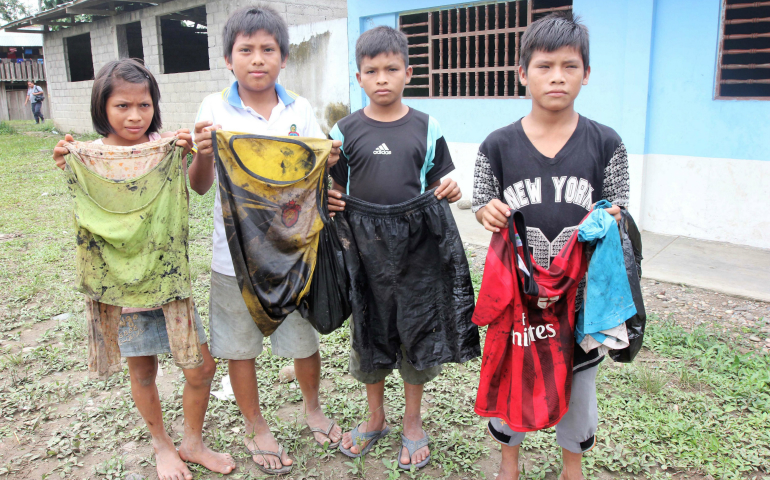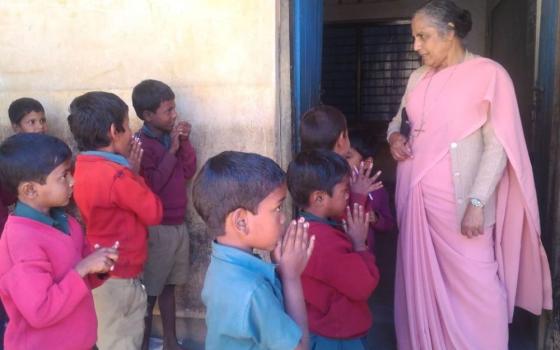
Awajun children in the community of Nazareth, at the confluence of the Chiriaco and Maranon rivers in northern Peru, show the clothes they wore -- with no protective equipment -- to scoop oil out of water near their community after a pipeline break in February. (CNS photo/Barbara Fraser)
Colonization has not ended, said speakers at the July 7-10 Sisters of Earth convention: Governments and industries are still taking land from indigenous people, largely destroying ecosystems for profit.
For example, while Spain no longer controls South America, "the way of thinking and feeling about the land did not change," said Medical Mission Sr. Birgit Weiler, who teaches at the Jesuit Antonio Ruiz de Montoya University in Lima, Peru, and works with the Awajún and Wampi tribes of the Amazon, who are fighting oil extraction on their lands. The concepts that individuals can own land and that good use of land is to extract resources from it "are colonial mindsets very present still today."
Sisters of Earth, an informal network of women, including sisters, concerned about the environment, held their biennial convention July 7-10 at Presentation Center, a retreat and convention spot nestled in the redwood trees of the Santa Cruz Mountains, about a 90-minute drive south of San Francisco.



